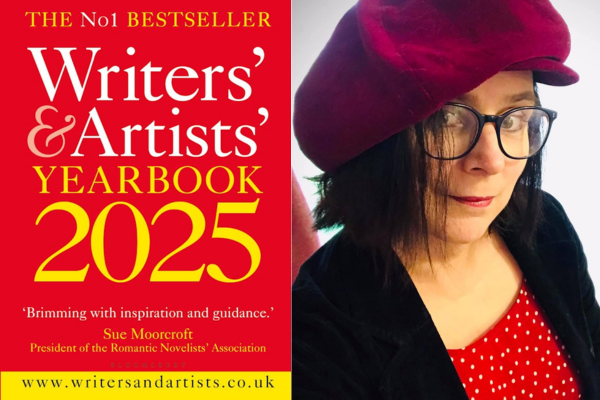Rebecca Collins, co-director of Hobeck Books and listings editor for the Writers’ & Artists’ Yearbook highlights some of the latest trends in the new editions of the Yearbooks.

Each year, as we edit the listings entries – who to contact and how – across the Yearbooks, we get an insight into changes across the publishing and media industries. Here are some of my observations for the sections I manage and edit.
Independent book publishers
It’s been another strong year for the small presses, bolstered by the formation of the Indie Press Network (IPN: https://indiepressnetwork.com/) in 2023, which has helped to connect fellow independent publishers. There are so many small presses about, more setting up each year, which operate from the kitchen table on a part-time basis. Most of the other small presses I have come across through the IPN are freelancers or part-time (or even full-time workers) who have a passion for publishing books ‘on the side’. Most are either funded by Arts Council England, not-for-profit or not yet making a profit but are surviving due to other income streams.
Small presses, in particular, are looking to operate more with diversity, equality and inclusion or the environment in mind both in their publishing and their operations. Examples include SRL Publishing (who are a climate-positive publisher; they plant trees to the equivalent of the books they print) and Renald Press (who recently won the diversity, equality and inclusion award at the IPG – Independent Publishers Guild). Then you also have publishers such as Inspired Quill who focus on social and cultural issues and work with their community. Increasingly, such publishers are also offering writing workshops and partner with non-for-profit organisations to foster creative writing in their communities.
There are also more small presses being formed by academic institutions, such as the UEA Publishing Project, added this year in the Writers’ & Artists’ Yearbook, which supports the publishing of students and graduates on their creative writing courses, and has a number of imprints, and is run in-house. This is one example of a plethora of small presses making their name in higher education institutions.
Print-on-demand (POD)
Small presses seem to be surviving for longer than they were perhaps a couple of years ago. I think this is down to changes in printing technology and funding opportunities. For example, small presses are increasingly using crowdfunding methods (either on their websites or via Kickstarter) to fund special editions of their books, anthologies or niche subjects. Developments in Print-on-demand (POD) technology have helped keep these publishers alive and thriving. They can now facilitate book bundles and special editions – something previously exclusive to the more traditional printers. Even mainstream printing companies such as Clays and CPI now offer schemes to help small publishers with distribution linking small companies and independent authors directly to customers rather than through traditional distribution and retail.
Hybrid publishers
The rise of ‘hybrid’ publishing companies continues each year with more companies who are fundamentally traditional publishers but now have a self-publishing / hybrid publishing imprint. There are also more independent authors who are setting themselves up as imprints or small presses of their own work. The lines are getting a bit more blurred in many cases. This is a trend to watch.
Card and stationery publishers
I was pleasantly surprised to see more new art / card companies that I could include this year. There are a lot of single or couple artists working together and setting up as small businesses. Those that are open to working with freelance artists (some are) have been added to our listings. So as well as the big companies such as Hallmark and Moonpig, there are a lot of ‘kitchen table’ operations springing up, as in book publishing, some highlight community, DEI (diversity, equality and inclusion) or the environment as an important part of their business ethos.
Regional newspapers
These continue to struggle, with even more centralisation and conglomeration taking place across the regional press. This means fewer opportunities for the freelance writer. The cover prices continue to rise at the same time as circulation figures continue to decline (in terms of frequency – many dailies are now moving to twice weekly publication). However, we are seeing the emergence of new community-led regional papers with examples such as the Social Spider in London, The Mill which covers Manchester but is spreading further afield, and the Bristol Cable.
Rebecca Collins is the co-director at a crime fiction independent publisher, Hobeck Books as well as editor, publishing project manager, artist and writer, as co-founder of Arch Publishing Services. She is a freelance listings editor for the Writers' & Artists' Yearbook and the Children's Writers' & Artists' Yearbook.
Comments